Records - Interview Part 1
by John Clarkson
published: 23 / 11 / 2007
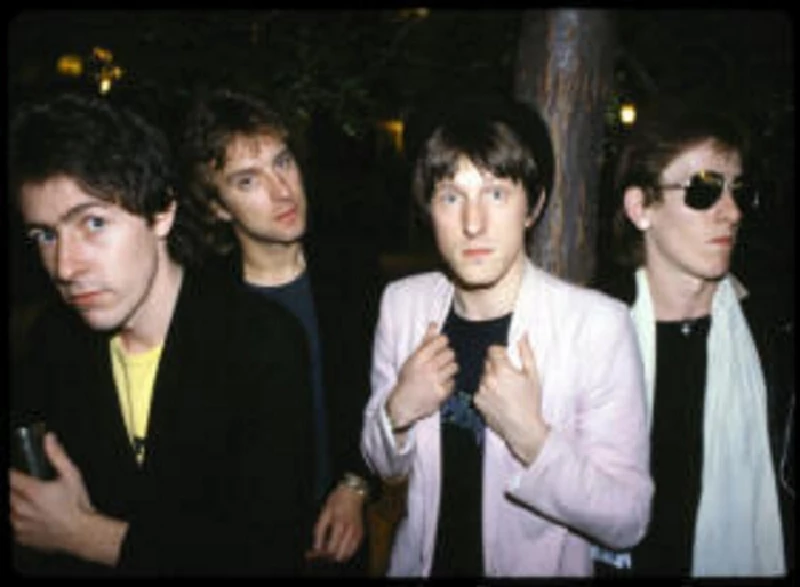
intro
In the late 70's melodic power pop rockers the Records looked breifly set for major success, especially in America, but it all fell apart in a series of Spinal Tap-esque bad decisions. In the first part of a two part interview, drummer Will Birch chats to John Clarkson about his group's rise...
With their chiming chords, sugary melodies and strong 60’s and power pop influences, the Records were completely out-of-step with musical fashion at the tail end of the new wave and the beginning of the new romantic era. Yet, for a brief while in 1979, it seemed that they were going to be huge. The group had been formed at the beginning of the previous year by John Wicks (vocals, rhythm guitar) and Will Birch (drums) out of the ashes of their previous band, Southend-on-Sea pub rockers, the Kursaal Flyers. Recruiting fellow musical veterans Huw Gower (lead guitar) and Phil Brown (bass) into the line-up, their debut single, ‘Starry Eyes’, was a minor hit in Britain. When the Records came to America for the first time at the end of 1978 as part of a Stiff Records package tour, they found, however, themselves attracting phenomenal interest. ‘Starry Eyes’ shot up the Billboard charts, and when the group returned to the States the following year they played a support slot to the Cars in front of 40, 000 people in New York’s Central Park and shows with Joe Jackson as well as their own headline dates As quickly as things, however, took off for the Records, they collapsed in a Spinal Tap-esque series of bad decisions and judgements which involved firings, lawsuits, equipment going missing and in a remarkable and final ditched attempt at success songwriters Wicks and Burch removing themselves from their own roles in the band. The story of the group that almost but didn’t quite make it is not an unusual one. Where Will Birch, the spokesperson for the band, gives it additional meaning and focus is that, rather than just shouldering it as is often the norm on his record company or an uncaring public, he with frank honesty and humour blames the Records in the main part for their own downfall. Having recently re-released with extra tracks all three Records albums, ‘Shades in Bed/The Records’ (1978), ‘Crashes’ (1979) and ‘Music on Both Sides’ (1980) on his own On the Beach label, Birch, who is now a respected music journalist, and who was the author of the pub rock history, ‘No Sleep Till Canvey Island’, took time away from work on his latest book on Ian Dury to speak to Pennyblackmusic about the Records’ rise and fall. PB : You first met John Wicks when he auditioned as a rhythm guitarist for the Kursaal Flyers. How long did it take you to start writing songs together ? WB : In 1977 the Kursaal Flyers were in disarray. People were leaving a sinking ship very fast. We needed a guitar player and Paul Shuttleworth, our vocalist, said, "I've met this guy called John Wicks. He plays rhythm guitar and he is a good harmony singer." Remember we are talking July 1977 here, and so I immediately rejected John on the basis of his appearance and for looking too straight, but Paul said, "No, no. I'll sort that out" and the next day John came to rehearsal and he looked like Johnny Rotten. It was an amazing transformation (Laughs). Anyway, John joined the group and immediately I recognised that he had a way with tunes. He and Paul wrote some stuff together with Paul writing these great words and John writing these great tunes. When the Kursaals broke up a few months later I wanted to continue to write songs. My strength was with words really. PB : That is quite unusual really for a drummer. There are not many drummers who can also write lyrics. WB : I can think of one. PB : There is Neil Peart, the drummer with Rush. WB : Yeah, okay, but I wasn't thinking of him. There aren't many. I could write tunes as well, but they weren't very good. Lyrics were what I was good at, so when the group broke up I said to John, "Do you fancy trying to write some songs together ?" and he said, "Yes" so we spent a few months putting songs together on an on/off basis and then when we had 10 or so reasonable songs we said, "Perhaps we better try and form a group." We discusssed what kind of group we wanted it to be. John and I were both Beatles fans and we also liked groups like Badfinger. Stealer's Wheels were another group which we really liked and I was also very keen on American power pop groups like Big Star, the Raspberries and Blue Ash. We set out some pretty strict parameters of what we did and didn't want to do and decided that were going to have a four piece group, two guitars, bass and drums, with those bands as our main influences. We went the usual route of trying to advertise in 'Melody Maker' to try and find some other people to play with us and we eventually found Phil Brown, the bass player, and Huw Gower, the guitar player. PB : You had to audition for about 200 guitar players though before meeting Huw, didn't you ? WB : We did. We auditioned at Alaska Studios which is under a bridge in Waterloo and also at another rehearsal room in Clapton in east London.. That was in the spring of 1978 and we must have spent about three months looking for guitar players. We actually found one guy who joined us for a few weeks and then left. When Huw did finally turn up and walk through the door, he looked right which was very important and he also knew about psychedelic rock which was another major factor .We immediately chimed with Hugh and started making demos together. I was still under contract from CBS because of the Kursaals. As part of that contract, CBS had first option on anything that I did afterwards. They put us in the studio and we did some demos. I can't remember the exact circumstances but things didn't work out with CBS and they let me go and I wasout of contract, which was great really. It made me a free agent Around about that time Stiff Records were a big noise. We didn't want to sign with Stiff because they were an indie and we wanted to be with a major and have loads of money (Laughs), but we liked Stiff and had in fact written a song for Rachel Sweet, which was called 'Pin a Medal on Mary' and appeared on her first record for Stiff ('Protect the Innocent', 1978-Ed). Then one Dave Robinson (Stiff's owner and co-founder-Ed), who I knew already, phoned me up one day and said, "We are going to do a new Stiff tour and we are going to be doing it by rail. We are hiring a train and we are looking for a backing group for Rachel. What about your new group, the Records ?" And so I said, "Well, I'll have a think about it" and I phoned Dave back and said, "Well, if you give us our own slot on the show we’ll do it." There were five acts already on that tour- Jona Lewie, Wreckless Eric, Rachel Sweet, Lena Lovich and Mickey Jupp-but to our astonishment Dave said, "Okay, you've got it" and so we did this UK tour through the autumn of 1978, backing Rachel for her 25 minute slot and seven songs, and also playing our own four song spot. We would open the show every night. Nobody knew who we were. We weren't on Stiff and the curtain would go up and we would be there doing 'Teen-a-rama' or 'Starry Eyes'. We went down quite well. PB : Did it feel strange backing Rachel ? She was 16 at the time and you were all guys in your late 20's at that time. WB :No, not at all because we were all teenagers at heart. In fact Rachel was in fact far more developed and advanced than we were. She was quite a tough cookie. She has abandoned her singing career now and I believe has gone on to relative success as a television executive in the States. She was really in charge and she was tough. She was a great singer as well. She was American, ambitious, a little bit phased by the punk/new wave scene in England, but she also got the joke. She was terrific. She was still in school at the time and her school had let her have the time off on the basis that she had to have a tutor on the tour (Laughs), who was actually Mickey Jupp's girlfriend, Hilary, and who was a school teacher. Hilary travelled on the tour and train with us. We would all be having a drink at the bar and Rachel would be doing her Latin homework. Rachel's big sister, Leah. also came on the tour to act as a chaperone her. PB : How long did the Stiff tour go on for ? WB : It was about six weeks. We must have played about 35 or 40 shows, going all over the UK and Northern Ireland on the train. When we were getting towards the end of the tour, this excitement ran through the carriages as the tour manager came up it saying, "You've got a day off tomorrow. You've all got to go home and get your passports." Several people didn't have passwords as you would imagine. It turned out that Stiff had arranged for the tour to go to New York to play at the Bottom Line club for four nights By this time we had recorded 'Starry Eyes'. We did that on days off on that Stiff tour. We would go into the studio and record it. Virgin Records had offered us a record deal and we had signed with them. We quite liked the idea though of 'Starry Eyes' coming out independently and they said, "Not a problem. We'll press it up for you. It can be on your own imprint." It looked like an independent record, but it wasn't. Virgin was bankrolling the whole thing. By the time we went to New York we had copies of 'Starry Eyes' pressed up, so we took a few with us in a suitcase. When we played the Bottom Line, all these radio jocks from these really great radio stations came to the show. We did a lot of pressing of the flesh and really put ourselves out when we were there. When we played England we were just a group nobody had heard of playing really unfashionable music, but in New York we really hit a chord. I wouldn't go as far to say that we were the piece of the show but we made a serious impression with the audience and the media on that trip. We woke up in our hotel to hear our record being played on the radio one morning. That was the starting point of the interest in the Records in the States.
Picture Gallery:-
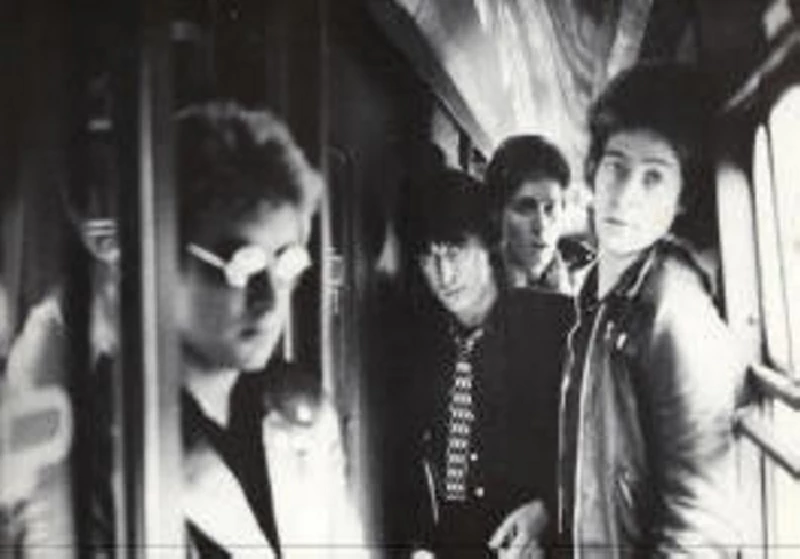
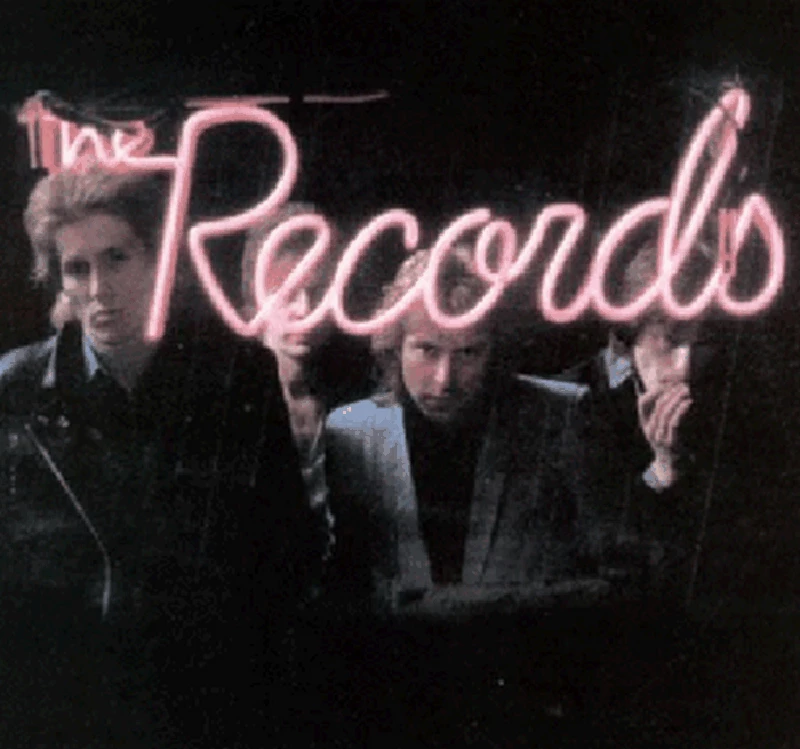
interviews |
|
Interview Part 2 (2007) |
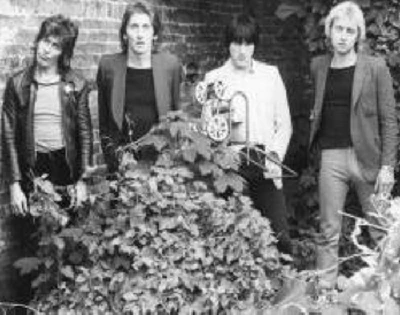
|
| ...while in the second part he tells of its downfall |
most viewed articles
current edition
Carl Ewens - David Bowie 1964 to 1982 On Track: Every Album, Every SongArmory Show - Interview with Richard Jobson
Colin Blunstone - Thalia Hall, Chicago, 16/7/2025
John McKay - Interview
Visor Fest - Valencia, Spain, 26/9/2025...27/9/2025
Bathers - Photoscapes 1
Billie Eilish - O2 Arena, London, 10/7/2025
Loft - Interview
Robert Forster - Interview
Sir Tim Rice - Interview
previous editions
Manic Street Preachers - (Gig of a Lifetime) Millennium Stadium, Cardiff, December 1999Heavenly - P.U.N.K. Girl EP
Beautiful South - Ten Songs That Made Me Love...
Oasis - Oasis, Earl's Court, London, 1995
Prolapse - Interview
Boomtown Rats - Ten Songs That Made Me Love....
Trudie Myerscough-Harris - Interview
Peter Perrett - In Dreams Begin Responsibilities Interview Part One
Coldplay - Wembley Arena. London, 16/8/2022
Pixies - Ten Songs That Made Me Love...
most viewed reviews
current edition
Davey Woodward - Mumbo in the JumboAmy Macdonald - Is This What You've Been Waiting For?
Sick Man of Europe - The Sick Man of Europe
Phew, Erika Kobayashi,, Dieter Moebius - Radium Girls
Alice Cooper - The Revenge of Alice Cooper
Lucy Spraggan - Other Sides of the Moon
Bush - I Beat Loneliness
Suzanne Vega - Flying With Angels
Blueboy - 2
Cynthia Erivo - I Forgive You
related articles |
|
Shield Patterns: Interview (2014 |
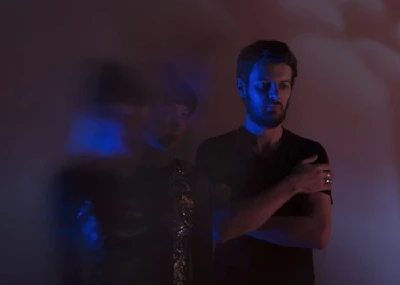
|
| John Clarkson speaks to Richard Knox, the owner of Gizeh Records, about Shield Patterns, the electronic duo that he has formed with Manchester-based singer-songwriter Claire Brentnall; their debut album, 'Contour Lines', and his growing label |
Pennyblackmusic Regular Contributors
Adrian Janes
Amanda J. Window
Andrew Twambley
Anthony Dhanendran
Benjamin Howarth
Cila Warncke
Daniel Cressey
Darren Aston
Dastardly
Dave Goodwin
Denzil Watson
Dominic B. Simpson
Eoghan Lyng
Fiona Hutchings
Harry Sherriff
Helen Tipping
Jamie Rowland
John Clarkson
Julie Cruickshank
Kimberly Bright
Lisa Torem
Maarten Schiethart